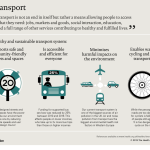Revolutionize Your Ride With Cutting-Edge Electric Car Charger Technology: Discover The Future Of Sustainable Transportation!
Exploring the Revolutionary Electric Car Charger Technology
As technology continues to advance, the automotive industry is not left behind. With the growing concern for the environment, electric cars have gained significant popularity. However, one of the major challenges faced by electric vehicle owners is finding an efficient and reliable electric car charger technology. In this article, I will be delving into the exciting world of electric car charger technology, its benefits, and how it has revolutionized the way we charge our vehicles.
What is Electric Car Charger Technology?
Electric car charger technology refers to the infrastructure and devices used to charge electric vehicles (EVs) efficiently. These chargers are designed specifically to supply electricity to the battery of electric cars. They come in various types and sizes, catering to the diverse needs of electric vehicle owners.
2 Picture Gallery: Revolutionize Your Ride With Cutting-Edge Electric Car Charger Technology: Discover The Future Of Sustainable Transportation!


Who Can Benefit from Electric Car Charger Technology?
Electric car charger technology is beneficial for both electric vehicle owners and service providers. EV owners can conveniently charge their vehicles at home, work, or public charging stations. Service providers, on the other hand, can offer charging services and generate revenue while contributing to a greener environment.
When and Where Can Electric Car Charger Technology be Used?

Image Source: energy.gov
Electric car charger technology can be used anytime and anywhere, as long as there is access to electricity. With the increasing availability of charging stations, electric vehicles can now travel greater distances without worrying about running out of charge. Many residential complexes, workplaces, and public areas have installed charging stations to cater to the growing demand for electric vehicle charging.
Why is Electric Car Charger Technology Important?
Electric car charger technology is crucial for the widespread adoption of electric vehicles. It addresses the issue of range anxiety by providing a reliable and efficient charging infrastructure. By making charging more accessible, it encourages more people to embrace electric vehicles, ultimately reducing carbon emissions and dependence on fossil fuels.
How Does Electric Car Charger Technology Work?
Electric car charger technology works by transferring electricity from the grid to the vehicle’s battery through a charging cable. The charger converts AC (alternating current) from the grid into DC (direct current) needed by the vehicle’s battery. The charging process can vary depending on the type of charger and the battery capacity of the vehicle.
Frequently Asked Questions about Electric Car Charger Technology

Image Source: motability.co.uk
Q: How long does it take to charge an electric car?
A: The charging time depends on the battery capacity, charger type, and power supply. It can range from a few hours to overnight charging.
Q: What types of electric car chargers are available?
A: There are three main types of electric car chargers: Level 1, Level 2, and DC Fast Chargers. Level 1 chargers use a standard 120-volt household outlet, while Level 2 chargers require a 240-volt outlet. DC Fast Chargers provide rapid charging capabilities.
Q: Can I install an electric car charger at home?
A: Yes, you can install an electric car charger at home. However, it is recommended to consult a professional electrician for proper installation.
Types and Sizes of Electric Car Chargers
Electric car chargers come in various types and sizes to cater to different charging needs. Level 1 chargers are the most basic and have a power output of up to 1.9 kW. Level 2 chargers, which are commonly used for residential charging, have power outputs ranging from 3.7 kW to 22 kW. DC Fast Chargers, also known as Level 3 chargers, have power outputs of up to 350 kW, allowing for rapid charging.
Materials and Specifications of Electric Car Chargers
Electric car chargers are primarily made of durable and weather-resistant materials to ensure longevity. They are designed to withstand outdoor conditions and provide safe and reliable charging. The specifications of electric car chargers can vary depending on the manufacturer and model, but they generally comply with industry standards and regulations for safety and performance.
Requirements for Electric Car Charger Installation
Installing an electric car charger requires a few essential requirements. Firstly, a suitable power supply is needed, which may involve electrical upgrades. Secondly, the location must have adequate space for the charger and comply with safety regulations. Finally, it is crucial to ensure proper installation by a qualified electrician to avoid any potential risks.
Tips and Tricks for Using Electric Car Charger Technology
Here are a few tips and tricks to enhance your experience with electric car charger technology:
1. Plan your charging sessions in advance to avoid unnecessary wait times.
2. Take advantage of off-peak charging hours to save on electricity costs.
3. Regularly inspect and maintain your charging equipment to ensure optimal performance.
4. Consider investing in a home charging station for added convenience.
Benefits of Electric Car Charger Technology
The benefits of electric car charger technology are numerous:
1. Convenience: Charging your electric vehicle at home or work provides convenience and eliminates the need for frequent visits to charging stations.
2. Cost Savings: Charging an electric vehicle is generally cheaper than refueling a conventional gasoline-powered car.
3. Environmental Impact: Electric vehicles reduce greenhouse gas emissions and contribute to a cleaner and greener environment.
4. Energy Independence: By relying on electricity for fuel, electric vehicles reduce dependence on fossil fuels and promote energy independence.
Disadvantages of Electric Car Charger Technology
While electric car charger technology has numerous advantages, there are also a few disadvantages:
1. Limited Range: Electric vehicles may have limited driving range compared to conventional cars, requiring frequent charging.
2. Charging Time: Charging an electric vehicle takes longer than refueling a gasoline-powered car, especially with Level 1 chargers.
3. Availability of Charging Stations: Although the number of charging stations is increasing, they may still be less accessible in some areas.
Price and Discounts for Electric Car Charger Technology
The price of electric car chargers can vary depending on the type, brand, and additional features. Level 1 chargers are generally more affordable, while Level 2 and DC Fast Chargers are more expensive. However, some government incentives and rebates are available to offset the cost of installing electric car chargers. It is recommended to research local programs and discounts that may be available in your area.
Conclusion
Electric car charger technology has revolutionized the way we charge our vehicles and has played a significant role in the widespread adoption of electric vehicles. With its numerous benefits, such as convenience, cost savings, and environmental impact, electric car charger technology is paving the way for a greener and more sustainable future. Whether you are an electric vehicle owner or a service provider, embracing this technology is a step towards creating a cleaner and healthier planet.
This post topic: Electric Car Technology

